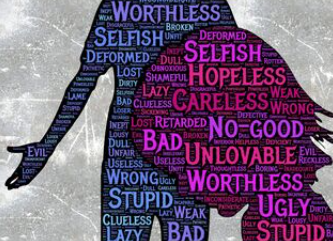Are You Too Hard on Yourself?
Most people are much harder on themselves than on their friends.
Habitual self-criticism induces stress and damages emotional and physical wellbeing.
Showing compassion towards yourself induces greater security, wellbeing and happiness.
Imagine that a good friend of yours is upset because they messed up on something that was important to them – they failed their driving test, or they hosted a party that didn’t turn out as they'd hoped. What will you say to them? Now imagine that these same things happen to you. What will you say to yourself? Is there a difference?
In this scenario, most people would offer their friend kindness, care and support. But most people would treat themselves far more harshly, saying critical things to themselves that they would never say to others. (‘How could you be so stupid?’ ‘Why didn’t you prepare better?’)
Do you ever catch yourself thinking ‘I should do that,’ or ‘I must do this,’ or ‘I ought to offer that’? Freud coined the term ‘superego’ to refer to the part of ourselves that functions as our conscience, that tells us what is and what isn’t acceptable behaviour. In some cases, the attitudes of our parents determine how severely we treat ourselves: A strict and morally upright upbringing might make some people habitually harder on themselves.
Many people believe that self-criticism is a powerful motivator, that it leads to the setting of high standards for yourself, to running your life efficiently and to achieving your goals.
Self-criticism is often our first reaction when things go wrong, activating the body’s stress response system and releasing cortisol and adrenaline. Although this works well to protect us against physical threats, many of the threats we face nowadays are challenges to our self-image or self-concept. If we react to these types of threat with stress-inducing, habitual self-criticism, we run the risk of seriously damaging our emotional and physical wellbeing.
So what can you do to mitigate the impact of harmful self-criticism on your daily life? The answer is simple: be kinder, more compassionate towards yourself – in other words treat yourself as you would treat a good friend who is having a hard time.
For example, picture a very common problem: you wake up in the night and you can’t get back to sleep. If you react critically (perhaps by telling yourself ‘I must get back to sleep – I’ve got work tomorrow. I’ll be useless if I don’t get back to sleep right now’), you will probably feel stressed, unable to sleep, suffer further stress as a result, and remain awake. A kinder, more compassionate response would be to take the pressure right off yourself by saying something like ‘I’m warm, I’m cozy and I’m resting’. Paradoxically, sleep may follow.
Another example is the person who fails an important exam and reacts in a harshly critical way: ‘You really messed up. If you’re ever going to make anything of your life, you need to try much harder.’ Is this really motivating talk, or might it be undermining and lead to a fear of failure? A kinder reaction might be: ‘I’m so sorry you didn’t get the outcome you wanted. It must be tough for you right now. Let’s think about what would support you best.’ Which would you choose to say to a friend?
If you are compassionate towards yourself, you can still have high personal standards – you just don’t need to beat yourself up when you fail. This will mean you become less afraid of failure, and more likely to try again after failing.
When mammals care for their young, protecting them until they are able to fend for themselves, oxytocin and endorphins are released, which help to reduce stress and increase feelings of safety and security. By the same token, extending compassion towards ourselves when we feel insecure is like getting comfort from a parent. As the Dalai Lama said: ‘If you want others to be happy, practice compassion. And if you want yourself to be happy, practice compassion.’

